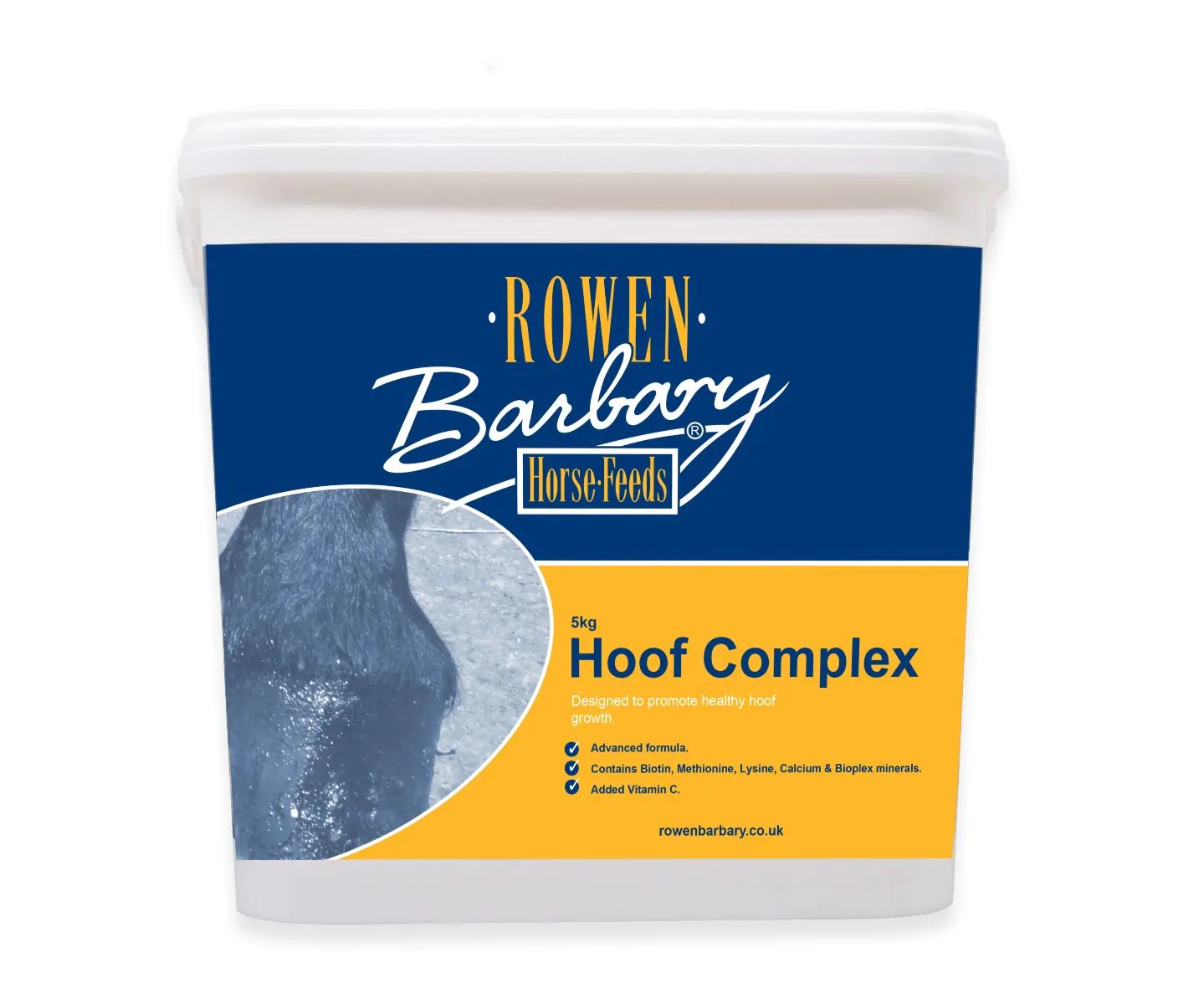- 23rd March 2022 by Rowen Barbary
Today’s Diet is Tomorrows Hooves
Hoof quality is not always just based on diet it can also include genetics and the environment the horse is living in. Although a horse may inherit weaker hooves through nutrition and care the horse will be able to maintain the best hooves genetically possible. The key to maintaining optimal hoof health is teamwork. The team consist of three categories, the diet, hoof hygiene and the farrier. The diet ensures all the nutrient requirements are being met to ensure the growth and strength is optimal. The hygiene of the hoof includes the environment and care, and the final team member is the farrier to ensure the hoof is balanced. This editorial will be focusing on the optimum diet for hoof health and what the hoof requires nutritionally to stay strong.
Diet
A well-balanced diet provides the essential nutrients for optimal hoof health, however, factors such as age, genetics, management and performance levels impact the hoof quality.
Protein
The hoof wall largely consists of structural protein called Keratin. Essential amino acids should be present in the horse’s diet as they are the building blocks of protein. The essential amino acids are Methionine, which is important for quality and Lysine which is important for improving protein availability especially in grass or hay-based diets as well as collagen formation and the repair and maintenance of tissue.
Fat
Omega 3 and 6 essential fatty acids within the diet help to create a barrier that helps to prevent the bacteria from entering the Hoof horn. Fats also help with hoof integrity as well as the shine in the coat and hooves.
Biotin
The first ingredient owners think of when looking at their horses’ hooves is Biotin. Whilst Biotin is important for hoof health there are a number of other nutrients that also affect the growth and quality. Biotin and B group vitamins are produced as a by-product of fibre fermentation. Biotin is involved in cellular growth and is often recommended between 10mg and 30mg (depending on size of horse) which helps with the production and deposition of keratin.
Calcium
Calcium is often thought more about when looking into the musculoskeletal strength however it is also important for holding the hoof wall together to help lessen the hoof crack and reduce crumbling of the horn. The correct ratio of Calcium to Phosphorus is 2:1 to ensure the phosphorus does not block the absorption of Calcium.
Trace Elements
A balance of Zinc and Copper within the diet support Keratin synthesis and help to reduce the risk of White line disease. The balance of trace elements also reduces the likelihood of hoof wall separation occurring.
For many horses, a balanced diet with naturally occurring Biotin will support hoof development and health, however it is important if you see there is an issue with your horse’s hoof health that you consult Vet or Nutritionist to determine if nutritional support is required.
If a nutritional support is required Rowen Barbary’s Hoof Complex is an advanced formula specifically design to include all the necessary nutrients to help support and help to improve sound, healthy hoof growth.
 Eleanor Blinkhorn (Bsc) | Equine Nutritionist
Eleanor Blinkhorn (Bsc) | Equine Nutritionist
 Eleanor Blinkhorn (Bsc) | Equine Nutritionist
Eleanor Blinkhorn (Bsc) | Equine Nutritionist 
About Rowen Barbary
All manufacturing at Rowen Barbary is carried out in a state of the art mill located in the heart of the Shropshire countryside. We use only the highest quality ingredients sourced, where possible, from local farms before they are blended by our dedicated team in our UFAS audited mill.
Rowen Barbary also conforms to BETA NOPS guidelines with raw materials & finished feeds regularly laboratory tested to ensure that every bag of feed continues to meet not only ours, but also your high standards.
We Recommend...


